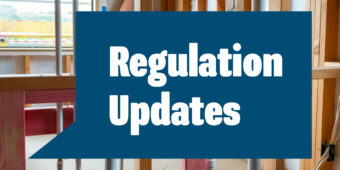Inflation hits tradies’ pockets
18 Mar 2022, Industry Updates, News

Construction sector wages rose last year, but industry experts say increased costs and high inflation has hit tradies were it hurts: their wallets
Stats NZ reported that tradies’ income has been on the up for four consecutive quarters when compared to the previous year. The year to March 2021 quarter (1.8%), the year to June 2021 (3.1%), the year to September 2021 quarter (3%) and the year to December 2021 (3.2%) all experienced increases.
The electricity, gas, water and waste services industry experienced the sharpest increase for the year to December 2021 quarter (8%), while employees within the textile, leather, clothing and footwear manufacturing received a 5.1% bump in their pay packet.
“Businesses surveyed in the labour cost index (LCI) continued to raise wages in industries such as construction and this is something we’ve seen flow into our most recent consumer price index (CPI) numbers,” Business Employment Insights Manager Sue Chapman said.
Furthermore, the Ministry of Business, Innovation and Employment’s Building and Construction Sector Trends Annual Report 2021, published in August 2021, showed an increase in the average hourly rate from $30.79 in the year ending June 2019 to $32.09 in the year ending June 2021.
Not all rosy
Despite the increase, this is still less than average hourly earnings across the private sector of $33.77 for the quarter ending December 2021.
Additionally, construction workers are unlikely to feel the benefit of increased wages as the annual cost of living was 5.2% higher for the average household in the December 2021 quarter than the December 2020 quarter.
Higher petrol prices were one of the chief causes of the high inflation, added Consumer Prices Manager Katrina Dewbery.
“Higher petrol prices have impacted middle-spending households more as they typically spend a larger proportion of their expenditure on petrol.”
In fact, the consumer price index (a tool used to estimate the average variation in the prices of products consumed by households between two given periods) recorded its largest increase since the series began in 2008 for seven out of 13 household groups. When compared with the December 2020 quarter, every household group in the December 2021 quarter experienced an increase in the costs of living between 4.8% to 5.4%.
Cost pressure everywhere
Grant Florence, Chief Executive at New Zealand Certified Builders at the time, added that a rise in input costs is placing a far larger strain on bosses than any increase in wages.
“I don’t believe wage increases will have a material impact on construction costs as these costs are currently being affected more by price rises or other input costs such as building materials, land costs and fuel costs.”
Florence added that inflation outstripping wages remains a cause for concern.
“Any increase that can be seen in workers’ pockets is probably being swallowed or offset by the rise in inflation,” he told Under Construction.
Practical impacts
However, Nolan Building director Daniel Nolan says he is starting to feel the pinch due to the combined pressure of rising wages and an increase in input costs.
“Employees’ wages have gone up over the past 18-24 months and our associated costs are huge. Fuel costs are up 40% in the last 12 months alone, but our charge out rate has stayed the same and that’s resulted in a lot of financial juggling from us.
“We’ll have to start putting up our prices for new clients to cope with it all.”
Newly qualified builder Hans Moser says he has seen his wages increase, but only because he pushed his boss to reward his experience.
“After I qualified, I had a good talk with my boss and asked him what I needed to do to get a salary bump. I felt that after seven years with the company I deserved it, and we eventually settled on an adjustment that worked for both of us.”
Register to earn LBP Points Sign in



